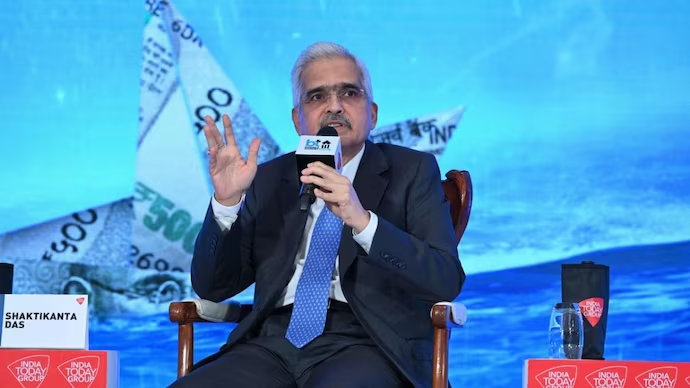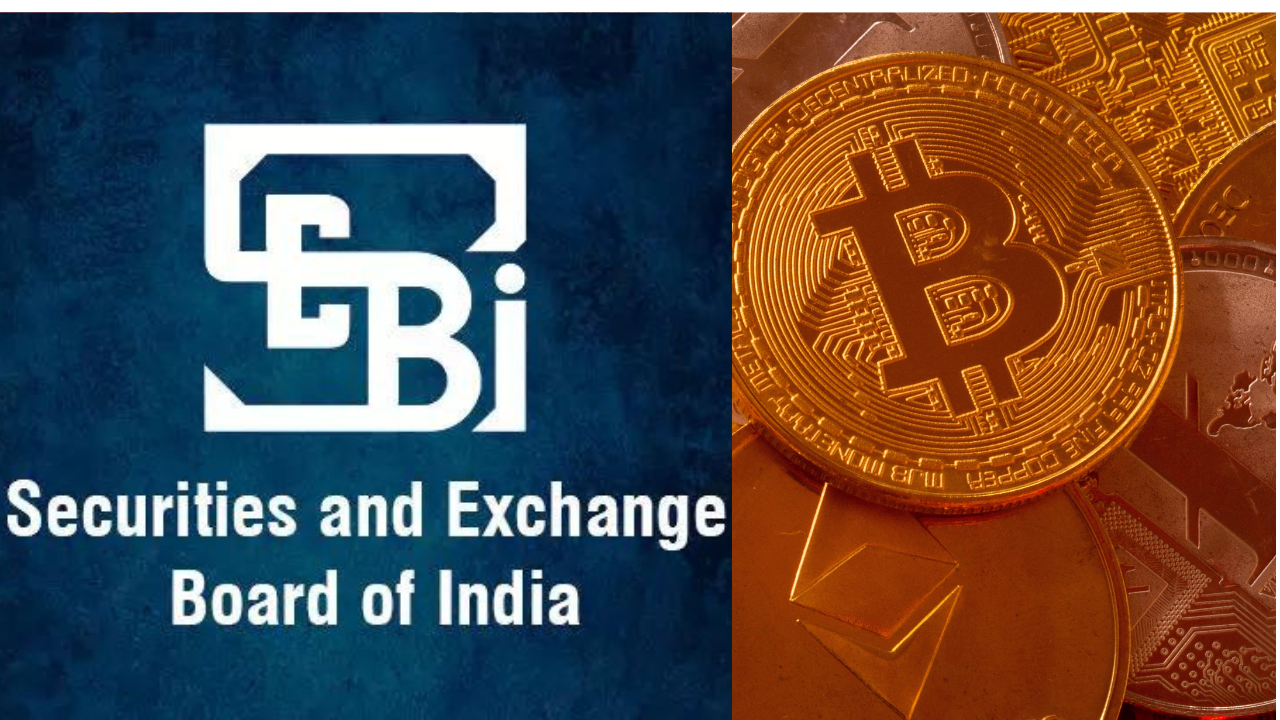Cryptocurrency Trading in India Faces Uncertain Times: SEBI’s Recommendations and RBI’s Concerns
By News 24 Media
New Delhi, May 20, 2024
In a significant development within India’s crypto landscape, the Securities and Exchange Board of India (SEBI) has recommended a multi-agency oversight for crypto trading nationwide. This move comes as a contrast to the Reserve Bank of India’s (RBI) historically strict control over digital assets. Let’s delve into the details and explore the implications for investors.

SEBI’s Multi-Regulator Approach
SEBI’s recent proposal suggests that different regulators should oversee various aspects of crypto trading, each falling under their respective domains. Rather than relying solely on a single, unified regulator, SEBI aims to leverage the expertise of various financial authorities. This approach could enhance regulatory clarity and build investor confidence by reducing the likelihood of market abuses and enhancing the overall integrity of the ecosystem.
Edul Patel, CEO of Mudrex, expressed optimism about SEBI’s proposal. He believes that a multi-regulator approach acknowledges the multifaceted nature of Virtual Digital Assets (VDAs) and represents a balanced and pragmatic stance. Such oversight can ensure comprehensive monitoring while fostering a conducive regulatory environment for crypto.
Similarly, Ashish Singhal, Co-founder of CoinSwitch, highlighted SEBI’s potential role in shaping the crypto landscape. He emphasized that an enabling regulatory environment has historically paved the way for greater consumer adoption in various sectors. While nuances need discussion, SEBI’s openness to overseeing crypto is a positive sign for the industry.
RBI’s Concerns and Call for Ban on Cryptocurrency

However, the RBI has expressed reservations over private cryptocurrency. Governor Shaktikanta Das considers them a threat to macroeconomic and financial stability. In January 2023, Das explicitly called for an outright ban on cryptocurrencies like Bitcoin and Ether, citing their lack of underlying value and their speculative nature. He labeled cryptocurrency as a form of gambling without any real-world basis.
The RBI’s stance is clear: private cryptocurrencies pose immediate risks to customer protection, are prone to fraud, and exhibit extreme price volatility. The central bank perceives them as entities that can cause financial instability. Das also warned that allowing cryptocurrency in India could hinder the RBI’s ability to monitor transactions effectively.
Dollarization and Regulatory Framework
Governor Das further raised concerns about dollarization due to rising cryptocurrency usage. He believes that increased adoption of cryptocurrencies may act against the country’s sovereign interest. The RBI emphasizes the need for a well-designed and appropriately regulated framework for digital assets. While the government has been working on a cryptocurrency bill for years, discussions continue on how to strike the right balance between regulation and innovation.

Investor’s caution
Investing in the cryptocurrency market during uncertain times requires a thoughtful approach. Here are proven strategies to help investors protect themselves and manage risks:
- Diversify Your Cryptocurrency Portfolio: Spreading investments across different cryptocurrencies can help mitigate risk and reduce the impact of price fluctuations on your overall portfolio. While diversification is often recommended, it’s essential to understand that many top cryptocurrencies are closely correlated with Bitcoin. Therefore, thorough research and technical evaluation are crucial when selecting assets.
- Implement a Risk Management Plan: Set clear stop-loss and take-profit levels for each investment. By doing so, you limit potential losses and secure profits when the market moves in your favor. Additionally, consider position sizing—investing only what you can afford to lose—to avoid overexposure to any single asset.
- Use Technical and Fundamental Analysis: Combine both technical indicators (such as moving averages, RSI, and MACD) and fundamental analysis (evaluating project fundamentals, team, use case, and adoption) to make informed decisions. Understanding the underlying technology and market sentiment is crucial.
- Monitor Market News and Sentiment: Stay informed about industry news, regulatory developments, and market sentiment. Cryptocurrency markets can be highly reactive to news events, so being aware of any significant announcements or changes is essential.
- Set Clear Investment Goals and Timeframes: Define your investment objectives—whether you’re looking for short-term gains or long-term growth. Having a clear plan helps you stay focused and avoid emotional decisions during market volatility.
- Evaluate and Rebalance Your Portfolio Periodically: Regularly review your portfolio to ensure it aligns with your goals and risk tolerance. Adjust your holdings as needed based on market conditions and any changes in your investment strategy.
- Safeguard Your Cryptocurrency Investments with Prudent Strategies: Consider using cold wallets (hardware wallets) to store your assets securely. Cold wallets are offline and less susceptible to hacking or cyber threats. Additionally, tools like Arkham can help you track the broader market and manage risk.
Conclusion
As India grapples with conflicting viewpoints, investors must tread carefully. While SEBI’s multi-regulator approach offers hope, the RBI’s concerns underscore the need for caution. As the Union Budget approaches, the fate of cryptocurrency trading hangs in the balance. Investors should stay informed, consider risks, and make decisions based on authentic information.
Disclaimer: The views expressed in this article are based on available information and expert opinions. Readers are advised to conduct their research and seek professional advice before making any investment decisions.
More Interesting Articles
Cooling Champions: The Top 10 Inverter Air Conditioners for Energy-Savvy Homes
iPhone Photography: Capturing the Ethereal Beauty of the Northern Lights!
IBM’s Bold Step: Acquiring HashiCorp to Redefine the Cloud Industry Landscape
TikTok Ban – US House Passes Bill That Could Ban TikTok
Walmarts Near Me -Retail Revolution: Self-Checkout Takes Center Stage
Shop laptops on sale – Top 5 Laptops of 2024 Your Ultimate Guide
The Iran Israel War: Navigating Economic Turbulence
Which is Better – Comparing AI Chatbots: ChatGPT Plus, Google Gemini, and Copilot
Harnessing Sunlight for Green Fuel: A Breakthrough in CO₂-to-Fuel Conversion
The Impact of Ongoing Military Engagements on US Military Personnel: A Call for De-
The Impact of Artificial Intelligence App on the Working Class: Navigating the AI Revolution
Dive into the Intriguing Lives of the Top 10 Wealthiest Women Billionaires on Earth
The Richest People in the World in 2024
Millionaire- The World’s Richest Metropolises: Where Millionaires Flourish
SBI Revamps all SBI Debit Card Charges: What You Need to Know
The Growing Popularity of Organic Fertilizers: A Sustainable Revolution
Billionaire in India – Mumbai Emerges as Asia’s New Billionaire Capital, Surpassing Beijing
Sodium Nickel Chloride Battery: A Sustainable Alternative to Lithium
Discover more from News 24 Media
Subscribe to get the latest posts to your email.


